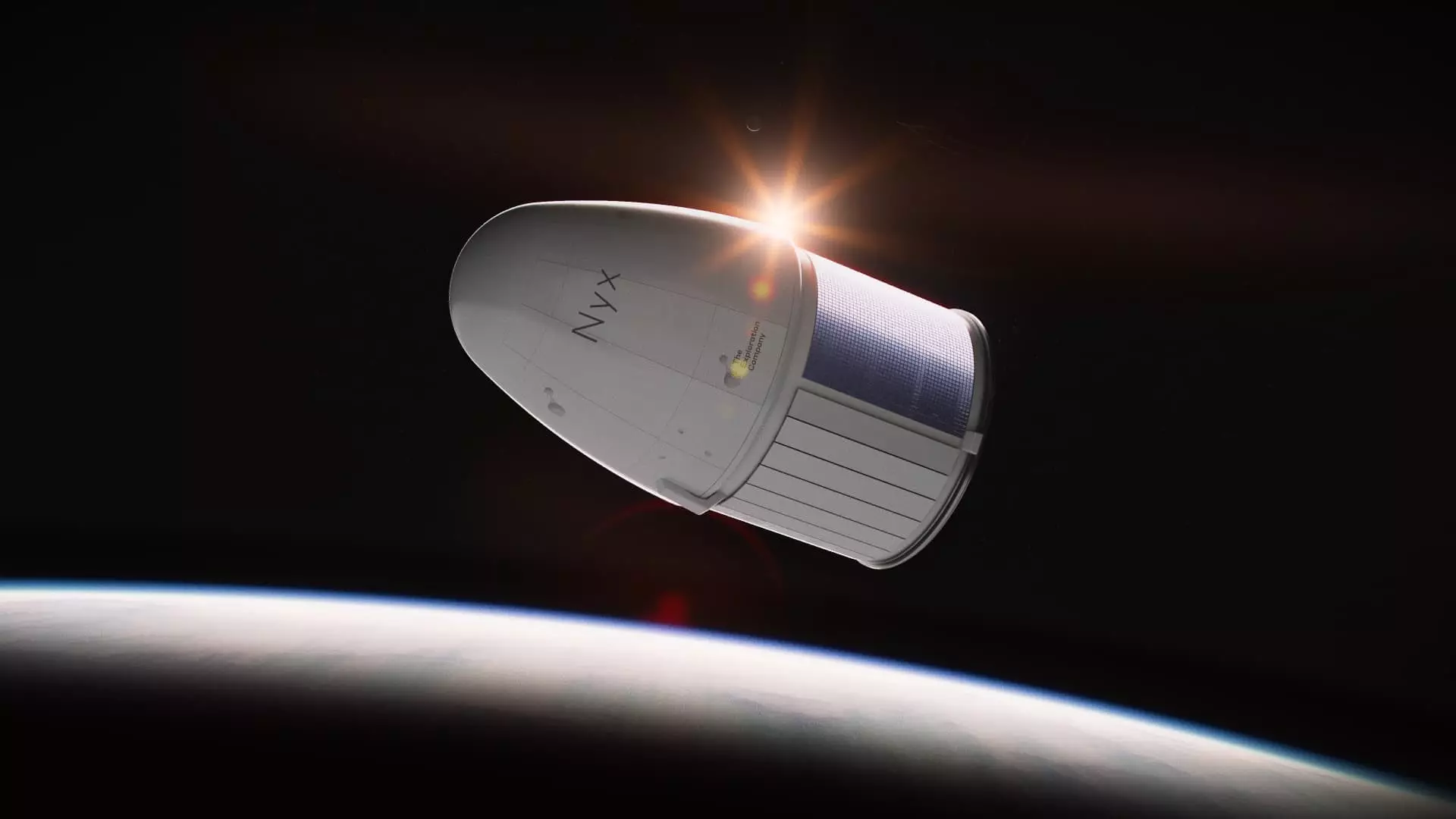In a remarkable display of confidence in the burgeoning space industry, The Exploration Company (TEC) has successfully secured $160 million in funding aimed at furthering the development of its innovative space capsule, Nyx. This critical investment round highlights the increasing stakeholder interest in commercial space travel and the potential economic benefits associated with it. Leading the charge are notable venture capital firms Balderton Capital and Plural, alongside additional investment from state-backed entities such as French Tech Souveraineté and Germany’s DeepTech & Climate Fonds. This financial backing reinforces the belief that opportunities in the space sector are worth significant investment as global interest in space exploration grows.
At the heart of TEC’s offerings is the Nyx capsule, a versatile vehicle designed to transport both astronauts and cargo to various space stations. What sets Nyx apart from many competitors is its reusable design, which allows the capsule to return to Earth safely after delivering its payload. This focus on sustainability is crucial for the future of commercial space travel, as reusability can make missions more economical and manageable in the long run.
Hélène Huby, the company’s founder and CEO, has outlined the reliability of Nyx, noting that once it drops off its cargo, it can re-enter Earth’s atmosphere and be prepared for subsequent missions. This not only minimizes waste and maximizes efficiency but also positions TEC as a frontrunner in an industry that is largely dominated by major players like SpaceX, which operates its own reusable Dragon capsule.
TEC’s foray into the space sector comes at a time when global interest in space exploration is escalating rapidly—countries like China, India, and the United States are ramping up their involvement in this cosmic frontier. As stated by Huby, there is a discernable increase in demand for space missions, whether they entail sending people to international space stations or engaging in exploratory missions to the moon. The commercial space market is currently witnessing a steady growth rate of over 10% per year, driven by the aspirations of more nations to launch their astronauts into space.
Despite this burgeoning market, it remains nascent, with only a handful of players besides SpaceX, such as companies from China and Russia, entering the arena. In this context, TEC’s mission to establish a European-based solution for space transport is particularly pressing. “We cannot only bet on SpaceX,” insists Huby, advocating for increased autonomy in European space initiatives.
Looking ahead, TEC is diligently working on the second iteration of the Nyx capsule, which is slated for launch next year, while the final version is expected to be unveiled by 2028. This ambitious timeline is set against a backdrop of collaboration with significant organizations, including the European Space Agency, which has pledged support in financing this groundbreaking project. Furthermore, TEC has already secured mission contracts totaling approximately $800 million with companies such as Starlab and Axiom Space, both of which are pivotal in the unfolding evolution of commercial and scientific space missions.
With increased missions on the horizon, including NASA’s Gateway project—a pioneering space station intended to orbit the moon—Huby emphasizes the need for continued innovation. As she articulates, a simultaneous rise in human presence in space directly correlates with the escalating need for cargo transport.
The Exploration Company stands at the precipice of transforming the landscape of commercial space travel. Nyx represents not just a vehicle for transporting payloads; it embodies a broader vision of international collaboration, economic opportunity, and sustainability in space exploration. As nations around the world continue to invest in their space programs, TEC’s commitment to developing a competitive European alternative presents a critical opportunity for the continent to establish itself as a significant player in this expanding domain. In doing so, TEC seeks not only to participate in the race to the stars but to ensure that Europe remains a vital part of humanity’s journey into the cosmos.

